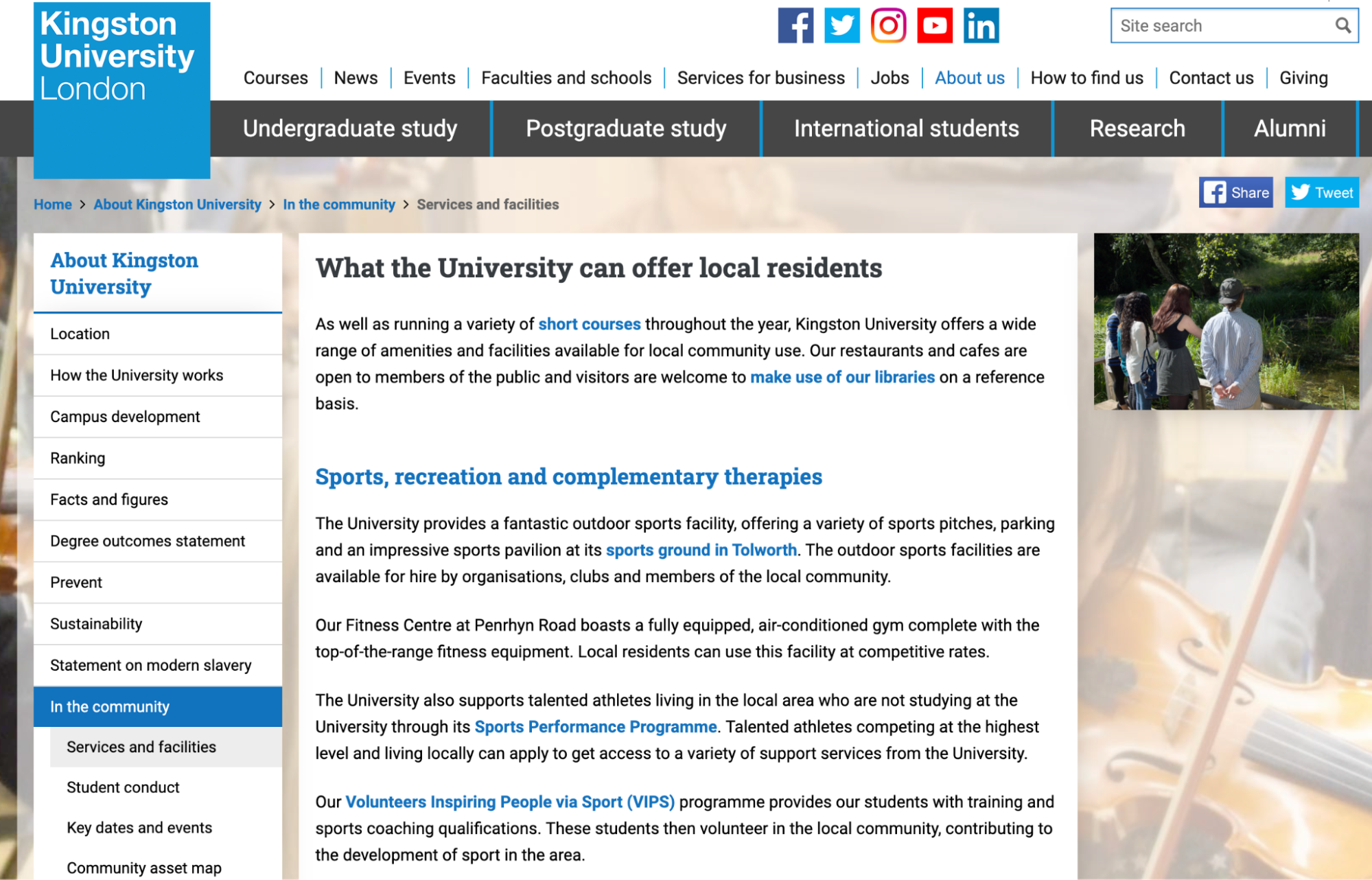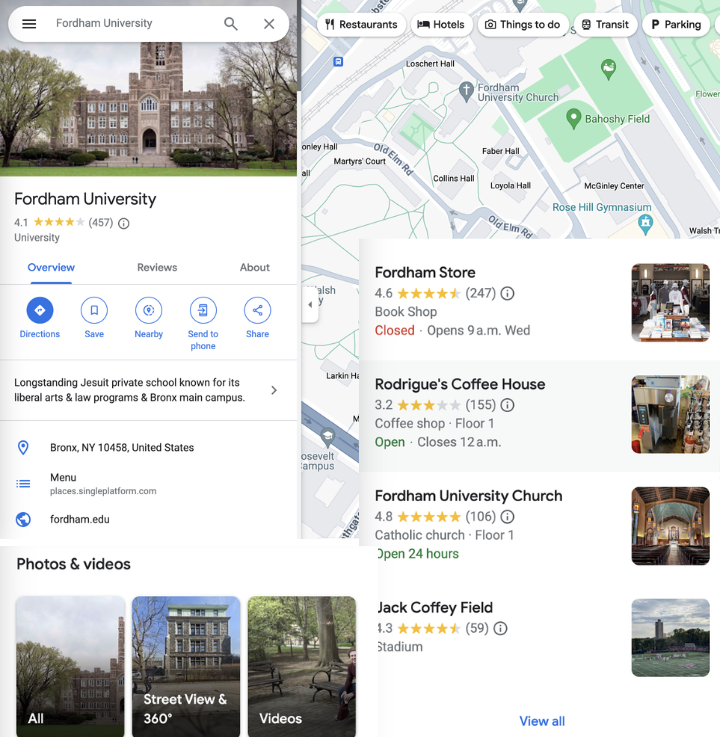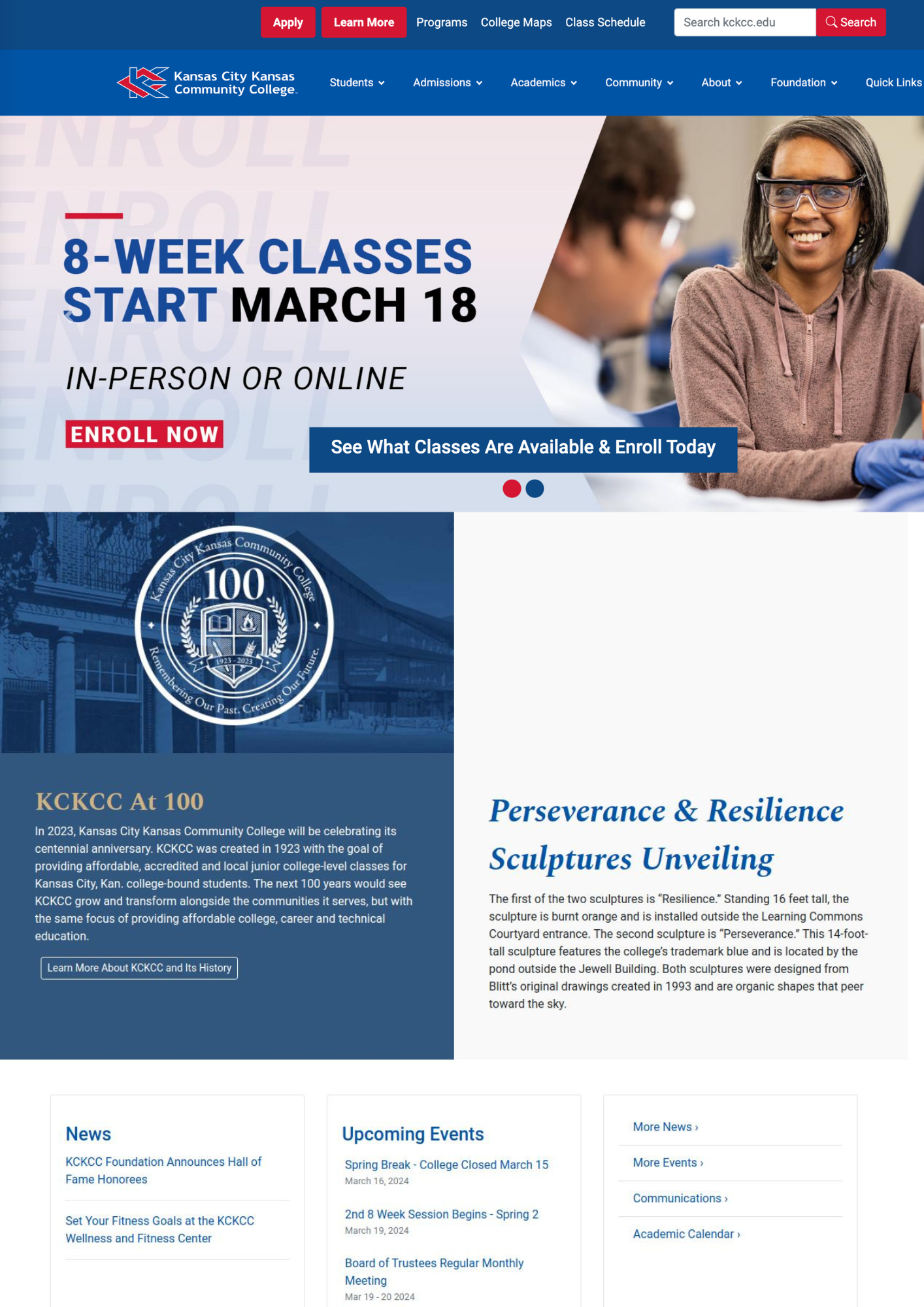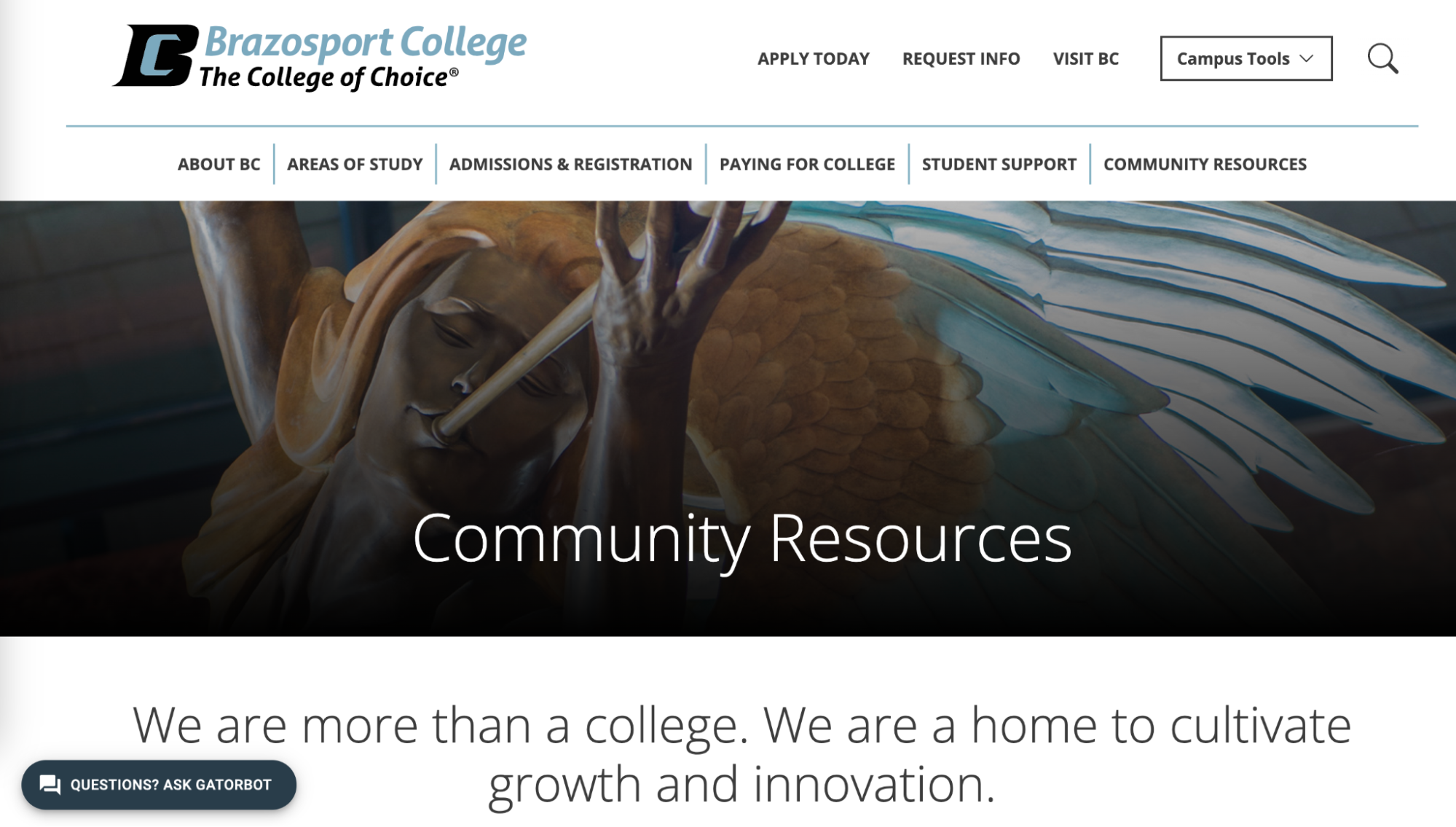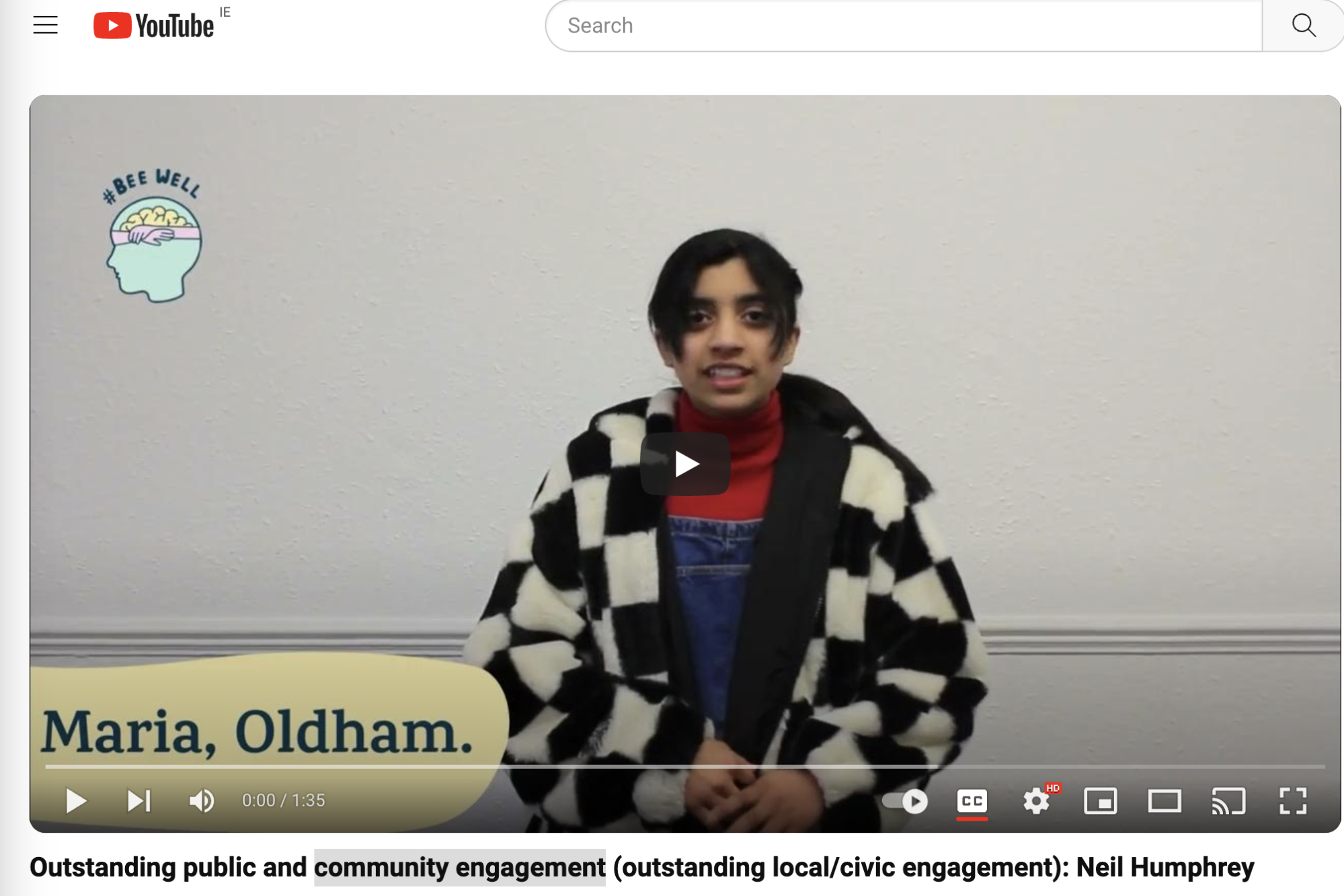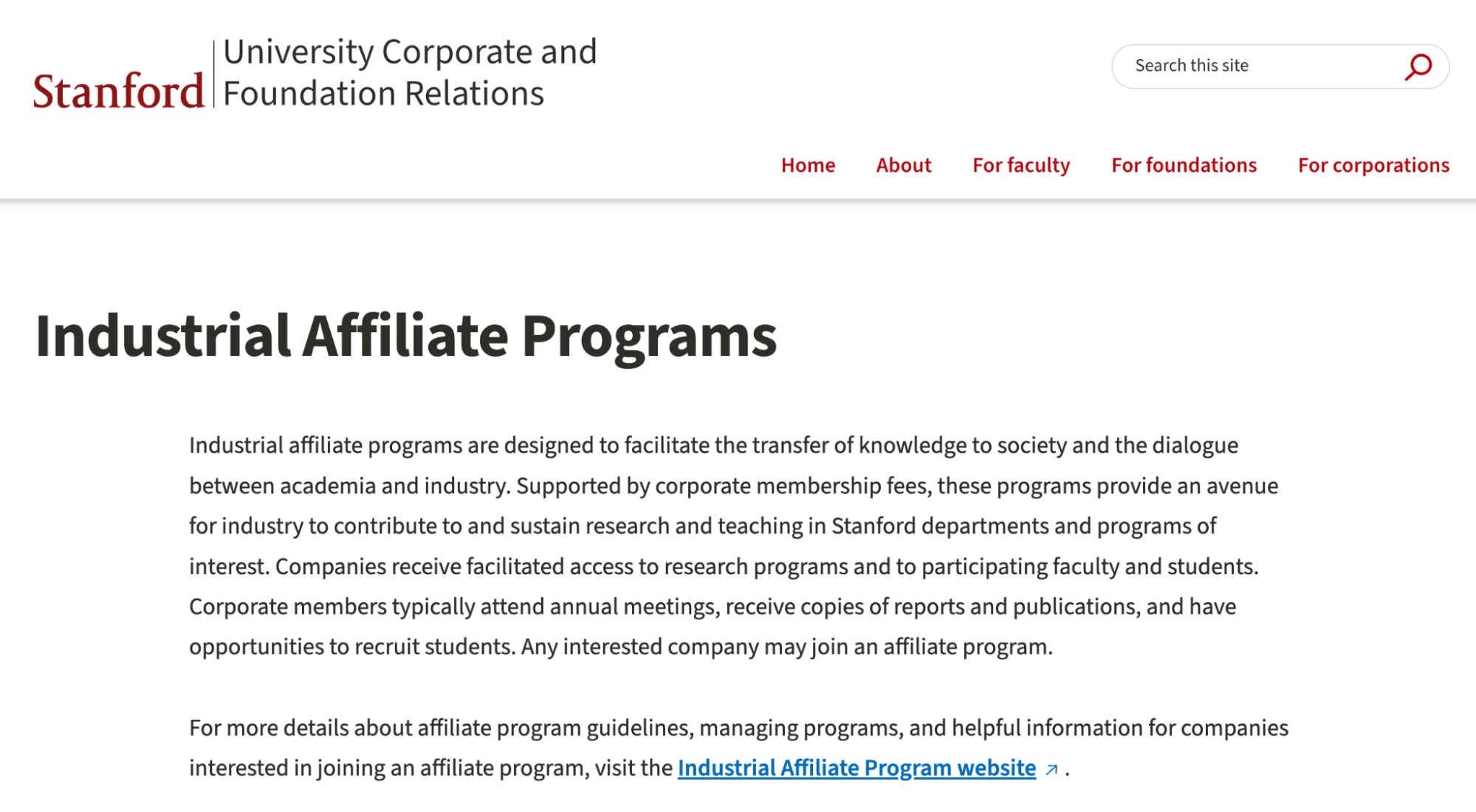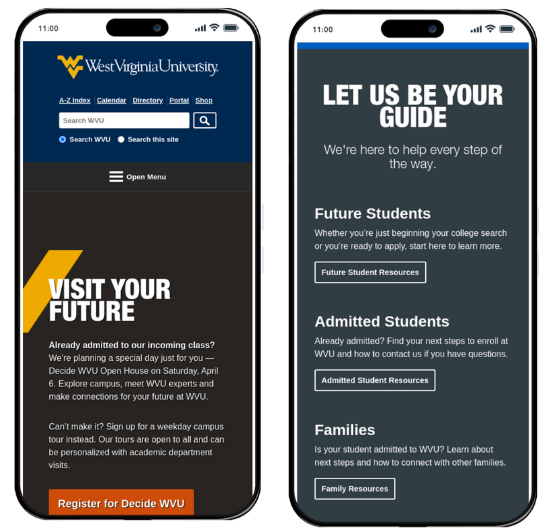As universities and colleges adapt to new challenges in digital marketing, we look at an often-neglected digital marketing strategy: local search engine optimization (SEO).
It involves optimizing your university or college’s online presence to attract more local traffic, visibility, and brand awareness—and attract the attention of local students.
But why would you use these techniques?
By targeting and prioritizing local SEO, you’ll be more visible to specific geographic areas you target and have better results in attracting prospective students.
There are many universities who use local SEO successfully—we’re going to look at some—and if you haven’t considered adding this to your digital marketing strategy, here’s where to get started.
What are the benefits of local SEO strategies?
Local SEO focuses on tasks like optimizing Google Business Profiles, finding local keywords, creating locally relevant content, and using tools like Google Search Console, Semrush's Listing Management, and Position Tracking to monitor and improve local SEO performance.
Doing this yields tons of benefits that contribute to your overall online visibility, community engagement, and student recruitment efforts.
Here are a few:
1. Targeted visibility
Local SEO helps you appear more prominently in local search results when prospective students and community members are actively looking for higher ed options in their area using search terms like "universities near [me]," for example.
2. Community engagement
With local SEO, you also have the opportunity to engage more meaningfully with your community, creating a sense of connection and involvement, for example, by promoting campus events, community partnerships, and other initiatives that resonate specifically with your local area.
3. Increased web traffic to your site
Universities and colleges can also use local keywords to optimize their Google My Business profiles, to get increased web traffic and clicks from visitors in the nearby area.
4. Competitive advantage
Local SEO can also offer you a competitive advantage in attracting local students over higher ed institutions that may not be as visible online.
5. Mobile search optimization
As so many students use their phones to search, local seo can be especially useful for these types of on-the-go searches, giving you increased visibility.
6. Local backlinks
Local businesses and organizations that mention or link to your university will strengthen your online reputation and credibility.
7. Enhanced user experience
With local SEO, you can optimize your prospective students’ experience by making information easily accessible and relevant to them (at a local level).
8. Positive online reputation:
Managing online reviews as part of your local SEO strategy can ensure a positive online reputation for your university.
For example, you can encourage student influencers to leave positive reviews, and respond to less-favourable reviews.
9. Measurable Performance Metrics:
It also offers measurable metrics, allowing you to track the performance of your digital marketing efforts and assess the impact of local SEO on website traffic, user engagement, and other key performance indicators.
10. Cost-Effective Marketing:
Lastly, and very importantly for many institutions, local SEO can be a really cost-effective marketing strategy compared to broader, national campaigns, where bidding for keywords can be cost-prohibitive. By focusing on local recruitment by targeting specific demographics, those keywords may be more affordable.
When to invest in local SEO (instead of broader SEO)
So when do you take the decision to invest in local SEO?
- When you cater to local or regional students, and have strong community engagement, e.g. with a specialized program relevant to the local area.
- When you have multiple campuses that might play an important role in the student’s program, for example, higher ed institutions with a marine biology program in coastal areas.
- When you have local partnerships, events, and initiatives that play a role in community outreach.
- When you have campus buildings, initiatives, and facilities that local visitors visit.
- When you’re facing strong competition with other local higher education institutions for student recruitment (e.g. in densely populated or large cities)
Kinston University London offers facilities for the local community
However, if your institution is known for specialized or niche programs, if your institution relies heavily on international students, or if you’re offering online degree programs, a broader SEO strategy is far more interesting.
For many universities and colleges, a balanced approach is often the most effective and will take into account their unique positioning and target audience.
9 steps to impactful local SEO
Step 1: Optimize your Google Business Profile (formerly Google My Business)
Google Business Profile can help you manage your business's online presence on search and Google Maps. You can manage information such as:
- your university or college name, category, physical address, and contact number.
- your website, open hours, and specific attributes like wheelchair accessibility.
- high-quality photos of your campus
- reviews from students and visitors
Key to a good listing are vibrant images showcasing campus life, accurate contact information, and regular posts highlighting upcoming local events.
Fordham University has a tons of information on Google My Business
Step 2: Research local keywords
Kansas City Kansas Community College (KCKCC) places them high
on the search rankings for local SEO
Researching local keywords that have a lower bid value will keep your budget under control. Look for keywords that align with the language of your community.
By using terms like "top local college programs" and "community-focused education," you can tailor your content to match the specific searches that local students might use.
Step 3: Create location-specific landing pages
Using landing pages with local community SEO keywords for the location of your university or college can yield great results.
Bravosport College does a great job targeting their local area specifically, with landing pages and content that focus on their community. They include their city as a keyword.
A search for “lake jackson community education” yields two top-level Brazosport College results, followed by the People Also Ask feature, with content also pulled from the College.
Step 4: Create a local content marketing strategies
To get the most of local SEO, you can tailor your content to resonate with the local community while aligning with your university's goals and values.
You could showcase stories of students, faculty, alumni, and community members who have made an impact locally, for example, or engage with local influencers, organizations, businesses, and community leaders to co-create content or cross-promote each other's initiatives. This expands reach and credibility within the local community.
University of Manchester, for example, engages in local engagement and maximizes its impact with marketing through their website and videos, where the university highlights its involvement in community events, partnerships with local businesses, and the positive influence its students have on the local area
Step 5: Build local backlinks (and direct leads)
Backlinks can serve as endorsements from reputable sources, contributing to your university’s overall SEO strategy and improving your search engine rankings.
For example, Stanford University has a dedicated webpage highlighting its collaborations and partnerships with various local (and global) entities and includes links to the websites of its partners, which enhances its own website's authority and credibility
Step 6: Use social media for local engagement
A social media strategy that focuses on building a sense of community both on and off-campus, fostering connections with local residents, businesses, and organizations can work very well for local SEO.
By promoting campus events, student achievements, and faculty spotlights on platforms like YouTube and Instagram, you can foster a sense of community and increase local brand awareness.
Arizona State University, for example, has a strong presence on platforms like Facebook, Twitter, Instagram, and YouTube, where they regularly share updates about campus events, student achievements, faculty research, and community partnerships.
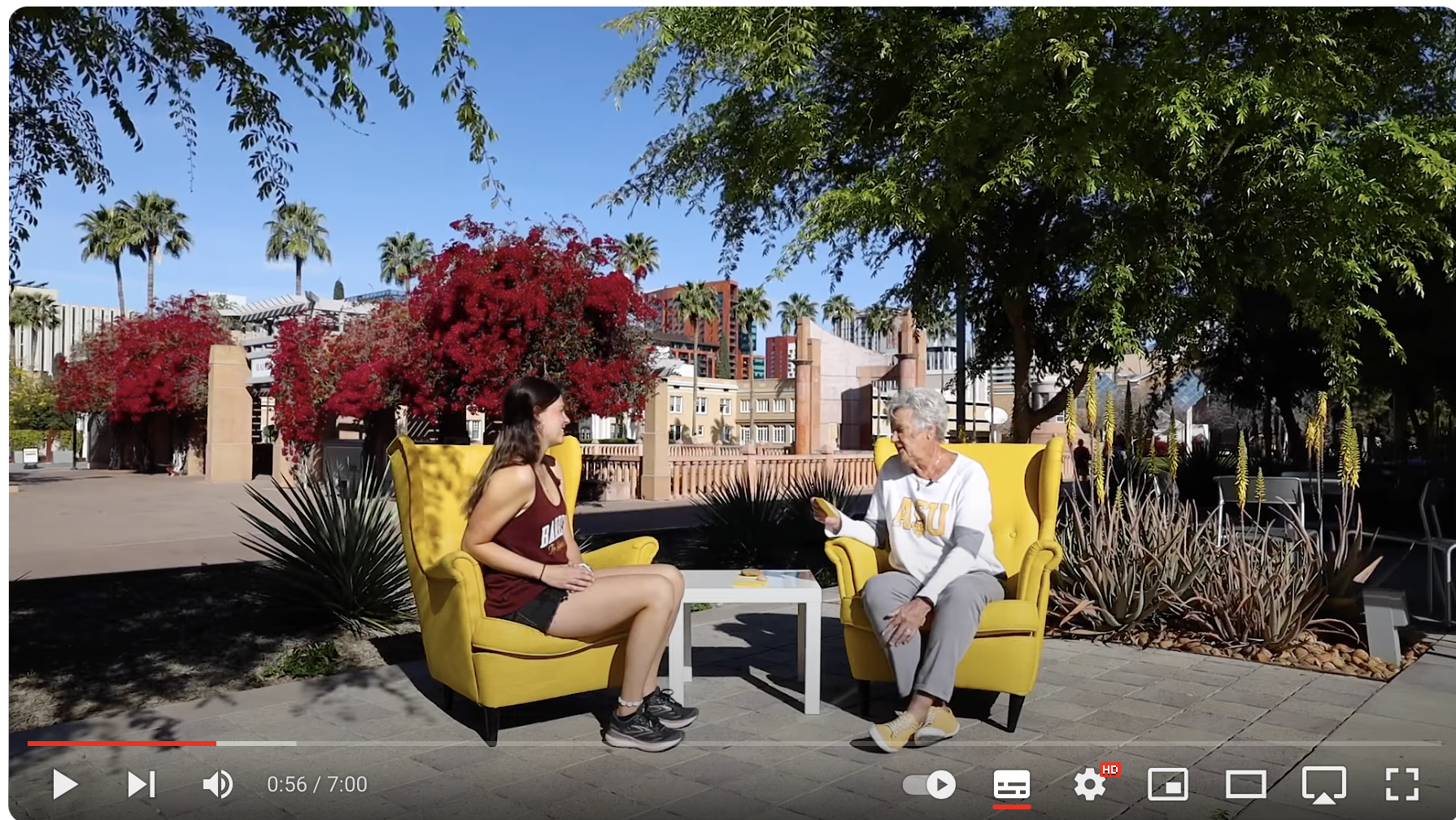
ASU’s Golden Conversation between student Deven and local resident Pencie
Step 8: Optimize for local searches on mobiles
A responsive design approach enhances local SEO for universities by ensuring a great user experience on mobile devices, fast loading speeds, and helps increase visibility to local audiences.
UVW University's website seamlessly adjusts to different screen sizes, catering to the mobile-savvy local audience
Step 8: Check your online reviews and manage your reputation
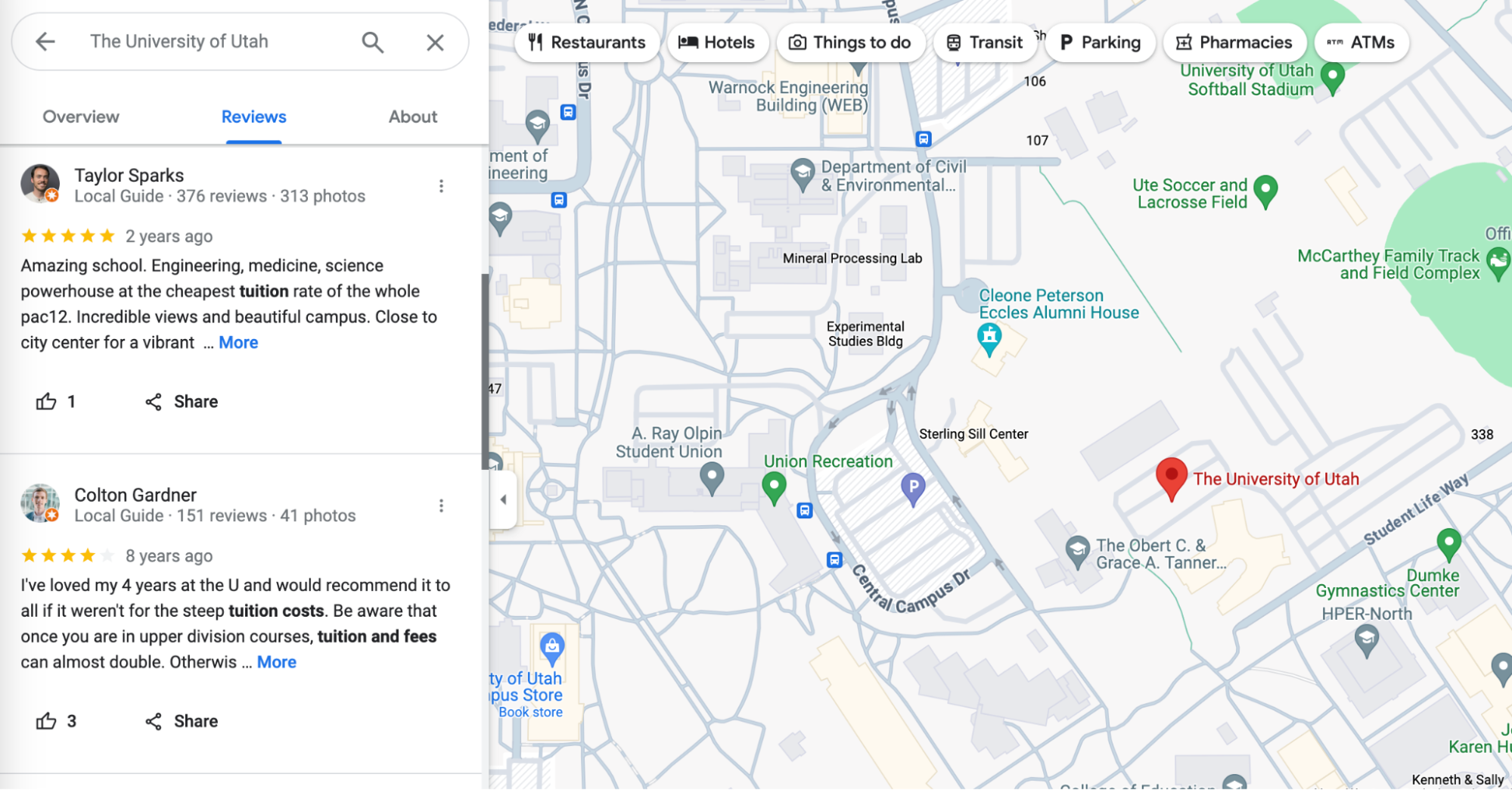
University of Utah has more than 1,330 reviews from students…but also from locals who enjoy the campus facilities like its natural history museum, the Red Butte Garden, and its stadium
It’s not commonly done, but we’ve previously asked the question, why are there so few authentic student reviews on university pages? The reviews are out there, but they’re not on your actual website.
Placing them there allows you to manage your online reviews and craft a response.
Very few universities respond to feedback on Google My Business; yet, that feature exists. Doing so would allow you to actively encourage positive reviews from happy students, but also address their concerns and contribute to a more positive online image in the local community.,
Step 9: Measure your local SEO performance
Lastly, use a comprehensive analytics dashboard to measure local SEO performance.
Track key metrics such as local search visibility, website traffic from local sources, and visitor engagement, and use these valuable insights to refine your local SEO strategy.
As the digital landscape continues to evolve, it’s important to explore all marketing avenues, and local SEO can be a powerful tool if you want to create a solid local digital presence for your higher ed institution in your community, to attract prospective students, and to be influential players in their local educational ecosystems.
Have you optimized your website for local SEO and had good results?

:format()//media/Local-seo-for-higher-education---RQ-(1).png)
